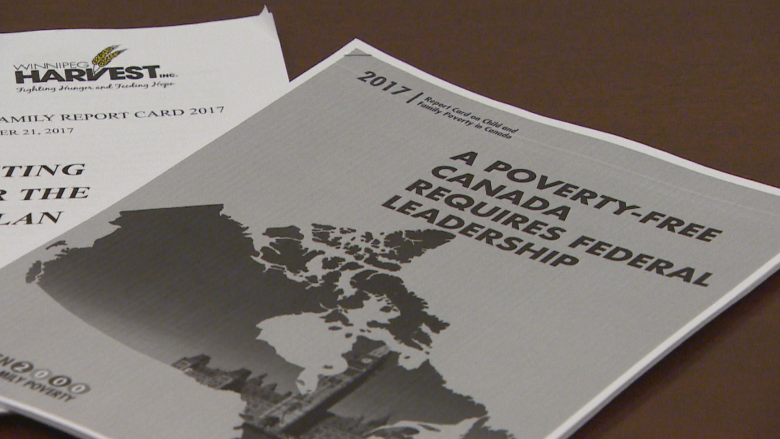Manitoba gets failing grade for 'nightmare' rates of child poverty
Manitoba is getting a failing grade when it comes to child poverty rates, according to a new report card.
"The situation remains what we would call a nightmare," said Sid Frankel, the author of the report card and a professor of social work at the University of Manitoba.
The report was released by Campaign 2000, a cross-Canada network of 120 national, provincial and community partner organizations committed to ending child poverty. The release of Manitoba's report card coincided with the release of a national report card in Ottawa and provincial report cards across the country.
Manitoba's child and family poverty rate was 27.5 per cent, the highest of any province and more than 10 per cent above the national rate — 17.4 per cent — the report said.
"There has been almost a 20 per cent deterioration in the child and family poverty rate since 1989," Frankel said.
"Looking at market income, how many children would be poor in Manitoba given only the earnings and investment of income of their parents, [it's] the highest of any province — 36.2 per cent — and 8.4 per cent above the national rate."
'Every day is a struggle'
Joy Black is a Winnipeg Harvest volunteer and mother of two children, ages 14 and 17. She receives employment and income assistance and lives in Manitoba Housing.
"We live in poverty," she said.
"Every day is a struggle. Every day you are trying to figure out, 'How am I going to pay for this? How am I going to pay for that?'"
Black held back tears as she talked about constantly having to say "no" to her children when it comes to being involved in school or extracurricular activities, and even when it comes to buying certain foods.
"It's really hard. It's difficult," she said.
"You want the best for your kids and you can't give the best for your kids."
The report card contained five recommendations for the provincial government, including a plan with targets and timelines to reduce the rate of child poverty by 25 per cent by 2023.
It called for a $15 minimum wage, improving welfare benefits so recipients reach the low-income-measure poverty line and a plan to decrease neighbourhood deprivation.
Lorna Turnbull, a law professor at the University of Manitoba, said it's also time to implement universal basic income.
"[We need to] think about our children, think about how we can do the best for all of our children," she said.
Ontario has just begun a three-year basic income pilot project. The province is exploring the effectiveness of providing a basic income — no matter what — to people who are currently living on low incomes, whether they are working or not.
The report card comes the same day as the Progressive Conservative government's third throne speech, which is expected to include an early-learning and childcare strategy for the province.
Frankel said that's an important step but the Pallister government promised a made-in-Manitoba poverty reduction strategy by the end of the year in its 2017 budget, and he wants more details.
"We are glad to hear the government is going to make some improvements in child care but a single bullet is not enough," he said.



